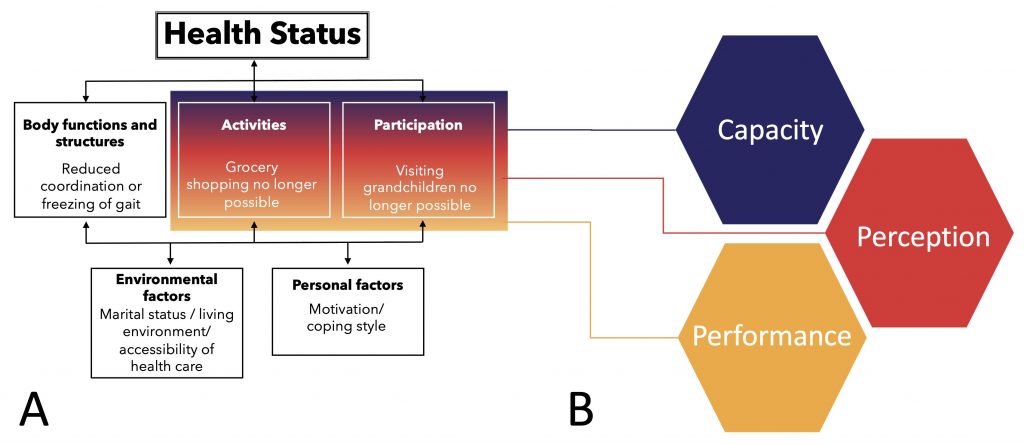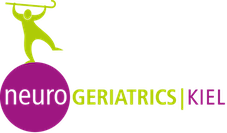Our mission: to improve assessment of mobility and daily function in older adults and neurological patients
Mobility reflects our ability to move. Daily function describes physical, behavioral, and cognitive activities and their individualized interaction with the environment. Older people often have daily function and mobility issues, especially when they suffer from neurological disabilities. Examples are stiffness, slowness of movement, gait and balance problems, fine motor deficits, depression, apathy, fatige, sleep disturbances, pain, somatosensory deficits including visual and hearing complaints, and cognitive deficits. An increasing body of literature supports that daily function and mobility is more closely associated with our quality of life, compared to any clinical test, blood-based laboratory value or image finding.
Unfortunately, assessment of daily function and mobility is still difficult to measure comprehensively in current clinical practice. Here, the professional health care team relies primarily on information that comes from clinical data entry forms and patient questionnaires. In recent years novel technologies were developed (including, e.g., smart-phones and -watches) that allow an objective and very detailed evaluation of mobility and daily function. This is a valuable development towards “daily relevant medicine”, and to what the World Health Organization understands by adequate measurement and consideration of daily function and mobility (Figure 1).

This figure shows on the left side the World Health Organisation (WHO) International Classification of Function, Disability and Health (ICF) model. This model is developed and used to assess health status from both healthy and diseased people. Most medical professionals focus on the assessment of symptoms and signs belonging to the body structures and functions domain (symptoms such as stiffness or tremor). However, we believe that the symptoms and signs belonging to the activities and the participation’s domains are equally or maybe even more important. In order to assess daily function we should focus to assess these domains. We can achieve that by using three different assessments:
- asking persons on how they perceive their daily functioning, using a questionnaire. This represents the ‚perception‘ assessment;
- challenging persons to perform certain tasks as best as they can –such as standing up, walking and turning – in controlled, standardised and supervised conditions. This represents the ‚capacity‘ assessment;
- measuring activities –such as walking with the dog, grocery shopping or sleeping– in the home environment, mainly with unobtrusive digital tools. This represents the ‚performance‘ assessment.
We display these 3 assessment types with the different colours to symbolise that they are all important in order to get a holistic view of daily functioning.
We are an academic team that brings together people with many different backgrounds, e.g. neurology, biomechanics, algorithm development, statistics, psychology and neuroscience. We collect data in people’s everyday environment using novel technologies. We develop algorithms that can measure as many aspects of mobility and daily functioning as possible. We focus on older adults with and without neurological diseases. We validate them against data collected in the clinic and in our labs. Validation makes sure that all these data can be interpreted in a meaningful way. We provide these algorithms to the research community on request, to support a continuous improvement process.
